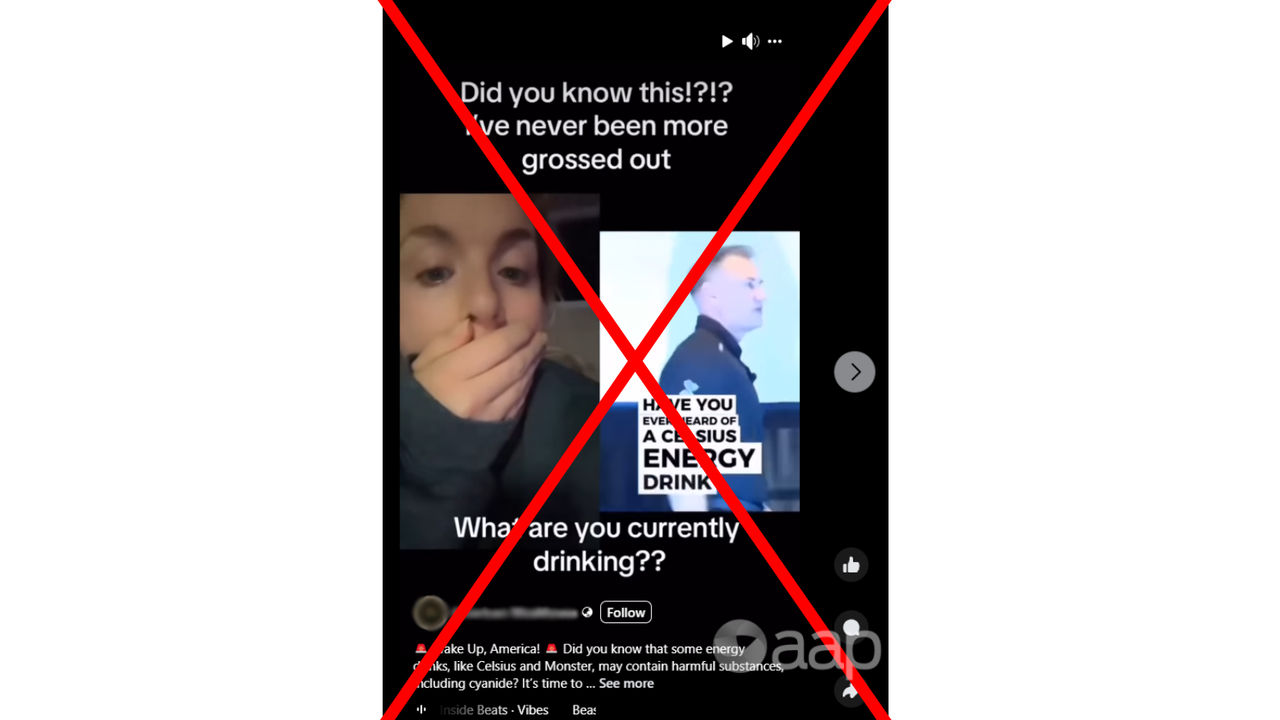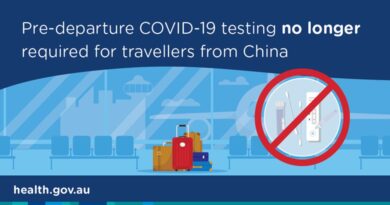No, energy drinks aren’t poisoning you with cyanide
Tom Wark
September 12, 2024
WHAT WAS CLAIMED
Energy drinks, including Celsius, contain four times your daily level of cyanide.
OUR VERDICT
False. While one of the ingredients does contain a cyanide molecule, the level of cyanide is many times lower than the daily maximum recommended intake.

AAP FACTCHECK – Quaffing certain energy drinks gives you more than four times your daily recommended maximum dose of cyanide, a video circulating on social media claims.
This is false. While certain drinks, including Monster and Celsius, contain a chemical with a cyanide molecule, the cyanide exposure from drinking these products is significantly lower than the recommended maximum intake.
In a video that’s been widely shared, health and wellness influencer Gary Brecka states that: “Celsius energy drink has four times the amount of daily cyanide that human beings are meant to ingest.”
He adds that both Celsius and Monster contain a “toxic chemical” called cyanocobalamin that contains “hydrogen cyanide”, and that any supplements containing the chemical should be thrown “in the trash”.
Mr Brecka has since told US news channel WKYC that: “This was a mis-quote and is not accurate. These videos have subsequently been taken down voluntarily as a result of this statement not being accurate. While they may still be in the public media, I have removed all of them from any social media platform under my control and have asked that others do the same as the videos are properly protected.”

Cyanocobalamin is a human-made form of vitamin B12, which is an essential substance our bodies need for healthy nerve function and to make red blood cells and DNA.
Vitamin B12 is found in many animal products, such as meat and dairy.
Cyanocobalamin is the most common form of B12 found in dietary supplements, and contains a cyanide molecule in its structure.
The World Health Organization (WHO) states that the provisional maximum tolerable daily intake of cyanide is 20 micrograms (mcg) per kilogram of bodyweight per day.
A 2019 analysis of Monster energy drink’s ingredients, published on the US Department of Agriculture’s FoodData Central website, found that one 240g serving contains 6.17mcg of vitamin B12.
Celsius’ ingredient list (Table 2, page 4) shows it contains even less vitamin B12 at 6mcg for a 355ml serving.
Dr Slade Matthews, a toxicology expert from the University of Sydney, said only a tiny proportion of the B12 molecule is made up of cyanide, just under two per cent.

Therefore, of the 6.17mcg of B12 in a can of Monster, he said you would ingest just 0.118mcg of cyanide equivalent.
Therefore an 80kg person would need to drink 13,560 servings of Monster in a single day to breach the WHO’s recommended daily cyanide limit of 20mcg per kilogram of body weight.
A spokesperson for the Therapeutic Goods Administration (TGA), which regulates the marketing and distribution of vitamins in Australia, told AAP FactCheck that cyanocobalamin is considered safe.
The spokesperson said cyanocobalamin is poorly absorbed by humans, so only a small amount of it becomes active in the body when taken by mouth.
The spokesperson added that “much of this excess cyanocobalamin is excreted safely through faeces”, citing a report by Australia’s National Health and Medical Research Council.
Dr Matthews said that experiments in mice showed cyanocobalamin “does not produce significant toxicity at pretty high doses”.
He pointed to data obtained by the European Chemicals Agency showing that in mice, “no toxic effects were observed for cyanocobalamin given alone or in combination up to a dose level of 5000 [milligrams per kg of bodyweight].”
A milligram, or mg, is 1,000 micrograms, or mcg.
Some other foods contain compounds that break down into cyanide in the body, for example almonds, lima beans and cassava roots.
Snopes also debunked the claim in the video. (AAP)



